Global Crossroads: Navigating the World
Each year, Stanford Graduate School of Business holds a conference focusing on a topical phenomenon that has world-wide relevance. Starting with a foundation of academic research presented by thought leaders on the topic, the conference will then expand to engage business and political figures in a dynamic conversation. Participants will leave with new learnings, new perspectives, and new questions to research.

Friday, March 20, 2015
Stanford Graduate School of Business
REGISTRATION FOR THIS EVENT IS CLOSED.
This conference will address how financial markets and institutions are adapting to recent changes in regulation and monetary policy. Researchers, regulators, and financial market participants will focus on changes in the manner by which capital, liquidity, and risk are intermediated by the financial sector, and how these changes are affecting financial market efficiency and risk-taking behavior.
Conference Organizers:
- Darrell Duffie, Dean Witter Distinguished Professorship of Finance, Stanford Graduate School of Business
- Arvind Krishnamurthy, Professor of Finance, Stanford Graduate School of Business
FRIDAY, MARCH 20
8:15 – 8:45 a.m.
Registration and Continental Breakfast
8:45 – 8:50 a.m.
Welcome
Garth Saloner, Dean, Stanford Graduate School of Business
8:50 – 9:00 a.m.
Opening Remarks
Darrell Duffie and Arvind Krishnamurthy, Stanford Graduate School of Business
9:00 – 10:15 a.m.
Session One — Money Markets and Monetary Policy
Leader: Jamie McAndrews, Executive Vice President, Director of Research, Federal Reserve Bank of New York
Phillip Schnabl, Associate Professor of Finance, Stern School of Business, NYU
Alex Roever, Managing Director, Head of US Interest Rate Strategy, J.P. Morgan Securities, LLC
10:15 – 10:45 a.m.
Break
10:45 a.m. – 12:00 p.m.
Session Two — Mortgage Credit and Liquidity Provision
Leader: Steven Abrahams, Managing Director, Head of MBS and Securitization Research, Deutsche Bank Securities
Nancy Wallace, Professor, UC Berkeley Haas School of Business
Adam Ashcraft, Senior Vice President, Federal Reserve Bank of New York
12:00 – 1:30 p.m.
Lunch and Keynote Speaker
Jeremy Stein, Harvard University, former governor of the Federal Reserve System
1:30 – 3:00 p.m.
Session Three — Bond Market Liquidity
Joanne Medero, Managing Director, BlackRock
Markus Brunnermeier, Professor of Economics, Princeton University
Darryll Hendricks, Managing Director, UBS
Lee Olesky, Chief Executive Officer, Tradeweb
Moderator: Darrell Duffie, Professor of Finance, Stanford Graduate School of Business
3:00 – 3:30 p.m.
Break
3:30 - 4:45 p.m.
Session Four — Shadow Credit Provision
Gary Gorton, Professor of Finance, Yale School of Management
Nellie Liang, Director, Office of Financial Stability Policy and Research, Federal Reserve Board
Stuart Davies, Managing Director, Sankaty Advisors
Moderator: Arvind Krishnamurthy, Professor of Finance, Stanford Graduate School of Business
SPEAKERS

Steven Abrahams, Managing Director, Head of MBS and Securitization Research, Deutsche Bank Securities
Steven Abrahams leads the Deutsche Bank Research Division team that provides market analysis and investment advice in residential, commercial, and consumer-securitized products. Abrahams, the founder and former managing director of Citadel Capital Advisors, had almost 20 years of securitization research and portfolio management experience before joining Deutsche Bank in 2010.

Adam Ashcraft, Senior Vice President, Federal Reserve Bank of New York
Adam Ashcraft focuses on the effects of bank capital requirements, monetary policy, and labor market issues. His research has included empirical study of the role of firm and bank creditworthiness, the impact of tougher capital requirements on bank capital and lending, the effect of bank failure and resolution on real economic activity, the effect of creditworthiness on the ability of banks to borrow in the federal funds market, and the impact of the credit derivatives market on the cost of debt capital and efficiency of the equity market.
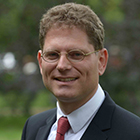
Markus Brunnermeier, Edwards S. Sanford Professor of Economics, Princeton University
Markus Brunnermeier is director of Princeton’s Bendheim Center for Finance. His research focuses on financial markets and monetary and macro-economy, with special emphasis on bubbles, liquidity, and financial and monetary price stability. His models incorporate frictions as well as behavioral elements. He is a recipient of the Bernácer Prize granted for outstanding contributions in the fields of macroeconomics and finance.
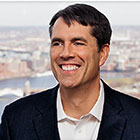
Stuart Davies, Managing Director, Sankaty Advisors
Stuart Davies is a managing director, a Credit Committee member, and the chief investment officer of Sankaty’s opportunistic credit business. He serves as the portfolio manager for the Sankaty Credit Opportunities funds and Sankaty’s separate accounts in opportunistic credit. Prior to his current role, he was responsible for investments in the metals and mining sectors and ran Sankaty’s Middle Market Group from 1999 to 2008. Previously, he worked for Prudential Capital Group, where he originated and managed a portfolio of private placement investments. He received an MBA from the MIT Sloan School of Management and a BA from Yale University. Davies is a CFA charterholder.

Darrell Duffie, Dean Witter Distinguished Professor of Finance, Stanford Graduate School of Business
Darrell Duffie is a member of the Financial Advisory Roundtable of the Federal Reserve Bank of New York, a Fellow and member of the Council of the Econometric Society, a Research Fellow of the National Bureau of Economic Research, a Fellow of the American Academy of Arts and Sciences, and a member of the board of directors of Moody’s Corporation since 2008. He was the 2009 president of the American Finance Association. In 2013-2014, he chaired the Market Participants Group, charged by the Financial Stability Board with recommending reforms to Libor, Euribor, and other interest-rate benchmarks. His recent books include How Big Banks Fail (Princeton University Press, 2010), Measuring Corporate Default Risk (Oxford University Press, 2011), and Dark Markets (Princeton University Press, 2012).

Gary Gorton, Frederick Frank Class of 1954 Professor of Management and Finance, Yale School of Management
Gary Gorton has done both theoretical and empirical research in many areas of finance. His research has focused on the role of stock markets and banks, arbitrage pricing, commodity futures, bank capital, bank production of liquidity, loan sales, securitization, bank loan pricing, and bank regulation. He also works on corporate control issues and asset pricing theory, including models of asset price bubbles and game theoretic models of trading and asset pricing.

Darryll Hendricks, Chief Operating Officer, Non-Core & Legacy, UBS
Darryll Hendricks is chief operating officer for the Non-Core & Legacy division of UBS, which manages assets and derivative positions that are no longer part of the core business of the UBS Investment Bank. His responsibilities include the development and monitoring of wind-down strategies and plans for this portfolio. Previously, he was head of strategy and regulatory reform for UBS Investment Bank and held various positions in the risk control area, including global head of risk methodology. Before joining UBS in 2005, Hendricks worked at the Federal Reserve Bank of New York for 13 years, where he focused on OTC derivatives, capital regulation, and clearing and settlement risks. Hendricks has a PhD from Harvard University.

Arvind Krishnamurthy, Professor of Finance, Stanford Graduate School of Business
Arvind Krishnamurthy’s research interests include financial intermediation, debt markets, housing markets, financial crises, monetary policy, and financial regulation. He has studied international financial crises in emerging markets. He has also studied liquidity in U.S. debt markets and the role of the Federal Reserve during a liquidity crisis. Recently, Krishnamurthy has examined unconventional monetary policy, including the effects of quantitative easing on financial markets and the macroeconomy.

Nellie Liang, Director, Office of Financial Stability Policy and Research, Federal Reserve Board
Nellie Liang is the director of the Office of Financial Stability Policy and Research (OFS) at the Federal Reserve Board. OFS is responsible for conducting and coordinating work at the board relating to analyzing emerging and structural risks to financial stability and developing macroprudential policies to mitigate systemic risks. Liang’s recent research has focused on fragilities in short-term funding markets, effect of creditor rights on real economic activity, and the cost of equity capital and corporate payout policies. Her research has been published in Journal of Finance, Journal of Financial Economics, Journal of Financial and Quantitative Analysis, and Journal of Public Economics, among other publications. She received her PhD in economics from the University of Maryland.
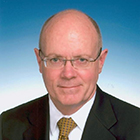
James McAndrews, Executive Vice President, Director of Research, Federal Reserve Bank of New York
James McAndrews is responsible for briefings for the bank president’s participation in Federal Open Market Committee meetings and for the economic and financial policy analysis prepared by the research group. He has played a prominent role in the New York Fed’s financial stability efforts, including contributing to the design of several liquidity facilities during the financial crisis. His main research area is the economics of money and payments, and he has written extensively on topics in monetary policy implementation, the liquidity of banks and markets, and monetary arrangements in U.S. history.
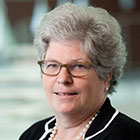 Joanne Medero, Managing Director, BlackRock
Joanne Medero, Managing Director, BlackRock
Joanne Medero's service with BlackRock dates back to 1996, including her years with Barclays Global Investors (BGI), which merged with BlackRock in 2009. She joined BGI as its Global General Counsel and after more than ten years in that role, became the global head of Government Relations and Public Policy for Barclays’ investment banking and investment management businesses. Prior to joining BGI, Medero was a partner with Orrick, Herrington and Sutcliffe, in their New York office, specializing in derivatives and market regulation issues. She also served as general counsel of the Commodity Futures Trading Commission (1989-1993) and as an associate director for legal and financial affairs at the Office of Presidential Personnel, The White House, from 1986 to 1989.
 Lee Olesky, Chief Executive Officer, Tradeweb
Lee Olesky, Chief Executive Officer, Tradeweb
Lee Olesky is the CEO and co-founder of Tradeweb. He has over 25 years of experience in managing both investment banking and financial technology companies. Prior to joining Tradeweb, he was CEO and founder of BrokerTec, a successful electronic brokerage platform. Previously, he worked at Credit Suisse First Boston in a variety of management positions, most recently as chief operating officer for the Fixed Income Americas division. Olesky is a member of the CFTC’s Technology Advisory Committee and has been named one of the “Top Global Executives and Innovators in Financial Technology” by Institutional Investor for each of the last six years.

Alex Roever, Managing Director, Head of U.S. Interest Rate Strategy, J.P. Morgan Securities LLC
Alex Roever is head of U.S. Interest Rate Strategy for J.P. Morgan Securities. He leads a team of strategists covering U.S. Treasuries, Agencies, and other interest rate sensitive products. He also leads J.P. Morgan’s Short-Term Fixed Income Strategy team, which covers interest rate and credit markets from overnight to three-years. Additionally, he coordinates research on emerging financial regulations and their impact on U.S. fixed income markets. Roever earned an MBA from Emory University, an MA in economics from Georgia State University, and a BA from Vanderbilt University. He is a CFA charterholder.
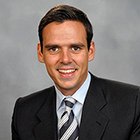
Philipp Schnabl, Associate Professor of Finance, Stern School of Business, New York University
Philipp Schnabl studies financial intermediation, central banking, and corporate finance. His work has been published in leading academic journals, including Quarterly Journal of Economics, Review of Economic Studies, and Journal of Finance. His work has received several awards, including the 2012 Brattle Prize for the best paper in corporate finance published in the Journal of Finance. He earned his PhD and MA from Harvard University and his BA from Vienna University of Economics and Business Administration.
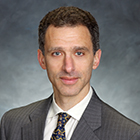
Jeremy Stein, Moise Y. Safra Professor of Economics, Harvard University
Jeremy Stein resigned from the Board of Governors of the Federal Reserve System in 2014 to return to Harvard. During his time at the Fed, he served on the Committee on Bank Supervision and Regulation and as co-chair of the Financial Stability Board’s official sector steering group on reforming interest rate benchmarks. Stein’s research has covered such topics as behavioral finance and stock market efficiency, corporate investment and financing decisions, risk management, capital allocation inside firms, banking, financial regulation, and monetary policy.

Nancy Wallace, Lisle and Roslyn Payne Chair in Real Estate Capital Markets, Haas School of Business, University of California, Berkeley
Nancy Wallace is chair of the Haas Real Estate Group and co-chair of the Fisher Center for Real Estate. Her research interests include housing price indices and models to monitor residential real estate price movements over the business cycle; mortgage prepayment and pricing models, mortgage contract design, and the market microstructure of mortgage-backed security trading; option pricing models for pricing commercial and retail real estate leases for use in the commercial mortgage-backed securities markets; and executive stock option valuation.